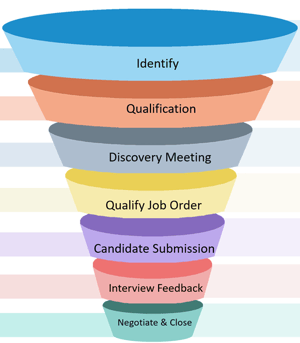The Real Reason Sales Role Play Fails—and How AI Role Play Fixes It
Yesterday, I hosted a live sales training call with a client’s sales team.
4 min read
![]() Dan Fisher
:
May 20, 2019 9:15:41 AM
Dan Fisher
:
May 20, 2019 9:15:41 AM

Studies show that sales coaching, not training or performance management is by far the most powerful tool for improving sales performance. Yet there are a number of  obstacles that stand in the way of sales managers consistently providing effective sales coaching.
obstacles that stand in the way of sales managers consistently providing effective sales coaching.
Most sales managers struggle with dedicating enough time to sales coaching while others lack a basic understanding of sales coaching including the seven essential sales coaching skills. And many more struggle with simply making the transition from sales manager to sales coach.
As such, many sales leaders treat sales coaching as an ad hoc exercise. This haphazard approach is done with good intentions and is better than nothing but it’s not as effective as it could and should be. What most sales managers struggle with is understanding how to properly structure their sales coaching.
In this blog post I’m going to share with you three ways to structure sales coaching for maximum impact.
Sales Coaching Structure #1, Tactical, Daily Execution
The most common type of sales coaching structure centers around the execution of daily sales tactics such as creating and managing a prospect call list, creating call plans, executing cold calls, objection handling, scheduling and running sales meetings and creating lead nurturing emails. This type of coaching is typically ad-hoc and in this case that is O.K. because it is absolutely necessary. However, the ad-hoc coaching that focuses on execution of daily sales tactics needs to tie into an overall skill development plan.
An overall skill development plan is a plan that the sales rep and manager co-create for ensuring that the salesperson fully adopts the targeted skill or behavior and becomes “unconsciously competent.” Without a formal, weekly 1:1 sales coaching session, the sales rep will never achieve unconscious competence and become “conversation ready.” Without formal, pre-planned one-on-one sales coaching sessions to support the ad-hoc sales coaching, the sales rep's behavior and skill level will never change. This is the difference between manager feedback and sales coaching.
On the first of each month the salesperson and the sales manager should meet to discuss and focus on one sales skill or sales behavior, two maximum, in which they will work on improving. Trying to work on more than two skills at one time is too much and will only frustrate the salesperson and the manager. So keep it simple. After selecting the specific skill or behavior, the sales manager and sales rep must agree on how skill improvement will be tracked and measured. Skill or behavioral improvement needs to be verifiable. This means both the manager and the salesperson need to agree on verifiable proof that the skill is in fact improving. Verifiable proof of skill improvement can only be verified through active listening, watching and observing (seeing) and of course, results.
Sales Coaching Structure #2, Sales Activity & Performance Data Driven Coaching
The entire sales profession has been experiencing a drastic transformation over the past decade in which sales managers are no longer “shooting from the hip” to coach their salespeople. Instead, today’s sales managers are relying heavily on data to drive their sales coaching and sales training strategies.
The question is, what is in your sales technology stack? Most likely you’re using a CRM and/or an ATS system to track sales activity and sales performance. You probably also use other business intelligence and reporting tools to report on sales and recruiter metrics.
Sales activity and performance data driven coaching refers to the sales manager leveraging data from those systems to coach salespeople to improve activity and performance levels.
Gone are the days of sales managers relying on gut instinct and telling their salespeople “make more phone calls” or “get more sales meetings.” Today’s sales managers are analyzing real data, identifying the trends and bottlenecks within the data and then using that data in their 1:1 sales coaching sessions. Most important of all, top performing sales managers are sharing the data with their salespeople and empowering them to self diagnose their own performance challenges. This is where the sales coaching skills come into play, especially the sales managers ability to lead with questions.
For example, a sales manager might say to their salesperson, “Dan, what are some of the trends you’re seeing when looking at your sales activity from the past month?” “What do you think changed last month compared to the previous month?” “What steps do you think you need to take to take to get back on track and why?”
This is sales activity data driven coaching. The manager is making the data the focal point of the conversation and enabling the sales rep to self diagnose their own issues and take corrective action.
There are several benefits to using data in sales coaching. For example, using data makes identifying and diagnosing sales issues easier than with no data. Data also provides historical context for activity and performance levels including visibility and context for comparing reps with one another. This is important because salespeople are competitive. Data can tell sales managers and salespeople what top performers are doing differently from what average performers are doing.
Sales managers should be meeting with their salespeople one-on-one every week for at least one hour for sales activity and performance data driven coaching. This kind of coaching session requires advanced planning on behalf of the sales manager.
Sales Coaching Structure #3, Coaching to the Sales Pipeline or Sales Funnel
Coaching a salesperson to their sales pipeline refers to the manager providing opportunity specific sales coaching. The sales coaching is focused on helping sales reps convert opportunities from the current stage of the sales pipeline to the next stage of  the sales pipeline. This kind of sales coaching requires advanced planning and requires a formal, weekly one-on-one meeting to be scheduled between the sales manager and salesperson.
the sales pipeline. This kind of sales coaching requires advanced planning and requires a formal, weekly one-on-one meeting to be scheduled between the sales manager and salesperson.
Coaching to the sales pipeline refers to the sales manager and seller reviewing and discussing the quality and health of the sales rep's sales pipeline including total revenue value of the sales pipeline, revenue value by stage, total number of deals, and quality of deals. The objective of coaching to the sales pipeline is to identify strategies in which the salesperson can accelerate the sales cycle and increase deal size.
This type of coaching clearly impacts the bottom line. Research conducted by the Sales Management Association revealed that companies that train their sales managers on sales pipeline coaching had 9% greater revenue growth than those that neglected to do so.
Keep in mind that this is not an exhaustive list of sales coaching activities. You may have also noticed that I didn’t include performance reviews as a way to structure your sales coaching. The reason is simple. Performance reviews are different from sales coaching. Performance reviews are just that; they are a review of the employees performance and the results they achieved against their goals or sales quota.
What steps are you taking to transition from sales manager to sales coach? How are you structuring your sales coaching? Let's start a conversation in the comments section below.

Yesterday, I hosted a live sales training call with a client’s sales team.

1 min read
Most staffing firms don’t struggle to scale because their teams aren’t working hard. They struggle because they don’t have a real go-to-market...

In my previous post, How to Prevent Unexpected Contract Terminations, I shared how systemizing consultant and client check-ins at key milestones...